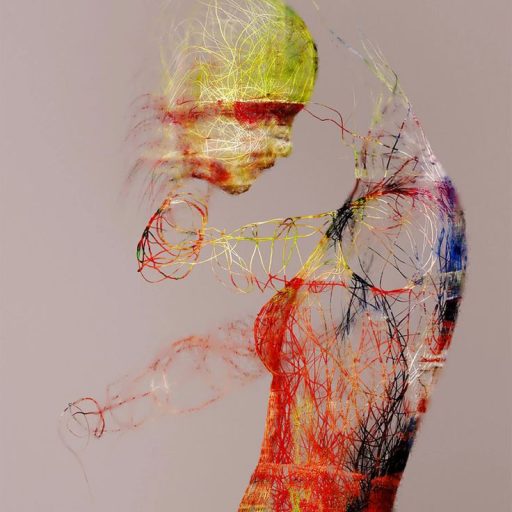About The Meaning Of Life
26 Kasım 2023Serap Kır
There are some questions that existential philosophers have been dwelling on for a long time. Among these questions, we will examine the ones related to the “meaning of life”. Some thinkers argue that life has no meaning, some argue that the person can create the meaning of life himself, while others argue that it will emerge with various methods. In this article, we will examine, criticize, and compare the views of two thinkers on the subject of “the meaning of life”, where there are many different arguments from each other. The first of these thinkers is Viktor Frankl. The work in which we will examine his thoughts on the meaning of life is “The Case for a Tragic Optimism” (p. 161-179), the third chapter of Viktor E. Frankl’s (1905-1997) book “Man’s Search for Meaning”. Another work we will examine is “An Absurd Reasoning, Absurdity, and Suicide” (p. 1-24), the first chapter of Albert Camus’s (1913-1960) book “The Myth of Sisyphus”. Both thinkers made important criticisms about the “meaning of life” and discussed the issue from various places.
Let us first consider Viktor Frankl’s (1905-1997) book “Man’s Search for Meaning”. Frankl divides his book into three distinct parts. In the third part, which we will examine, there is a discussion of “tragic optimism.” Within this discussion, the author conveys to us his thoughts that he blends the concepts of optimism and meaning. Frankl explains the “tragic triad” in logotherapy as follows, pain, guilt, and death. One can stand strong even in the face of any of these concepts. The potential to do the best can occur in three ways; it is by turning pain into human success, by finding the potential to direct oneself to the better, and by accepting that life is temporary and taking a responsible attitude (Frankl, 1946: 162). A common denominator was required for these three situations to occur. This was “finding meaning.” The author shows three basic ways to reach meaning. These three basic ways are creating a work, interacting with a person (including feelings such as love), and finally developing an attitude towards the inevitable (Frankl, 1962: 170). At this point, the author makes determinations about ‘developing an attitude towards the inevitable’. He mentions that the helpless person, in his own words, must turn his personal tragedy into a victory, so that he can cope with the pain and make sense of it. We can say that the author sees meaning-making to reach optimism. It is necessary to go through some stages to embark on the path to optimism with meaning. The author cites the following example by quoting the Texarkana Gazette; A young man named Jerry Long is paralyzed from the neck down because of a diving accident at the age of 17. Despite this, she does not break away from life and hugs her with four hands and now even participates in classes in school. In his letter, Long states that he sees his life as full of meaning and accepts the day of the accident as the password of his life (Frankl, 1962: 172). A similar example is given by the people who await death in concentration camps, turning to instant pleasures without obeying orders (p.163). Based on these examples, we can say “acceptance” or “renunciation” is the common stage required to reach an attitude of optimism from the concepts of pain, guilt, and death.
Viktor Frankl sees the sense of meaninglessness as one of the biggest factors that lead people to negativity. He explains the reason for the ambiguity as follows; “As for the cause of the sense of meaninglessness, it can be said that although there is much to make people live, there is nothing to live for, albeit an oversimplification; People have the means, but no ends.” (Frankl, 1962: 165). For example, he observed that when unemployed people with plenty of time were persuaded to work for free for useful works such as public libraries, the association observed that when they did a meaningful job, their depression disappeared even though their economic situation did not improve. p. 165). Also, the author mentions that nonsense is not caused by anything pathological, but can cause a pathological response, that is, potentially pathogenic (p. 166).
Another important thinker, Albert Camus (1913-1960), presents his ideas about the meaning of life in his essay book. This work is An Absurd Reasoning, Absurdity, and Suicide” (pp. 4-8), the first chapter of Albert Camus’s (1913-1960) book “The Myth of Sisyphus”. For Camus, the question that needs to be answered urgently should be the meaning of life (Camus, 1955: 4). Camus further states that the only philosophical problem that really matters is suicide (p. 4). The author emphasizes absurdity in the mentioned parts of his book. According to Camus, absurdity emerges when one tries to find the meaning of life in a world full of contradictions and meaninglessness. At this point, absurdity first drives people to despair. In despair, the individual tries to make sense of his life, but the world is absurd. Since he cannot accept the absurd, he cannot overcome his despair with meaning and is driven to suicide (p.8). Camus states that the person who commits suicide wants to tell us something. According to him, the person who commits suicide tells us that he does not understand life and that life transcends itself; that is, it is not worth living (Camus, 1955: 5). But Albert Camus argues that suicide is not the solution. He sees escaping from life as parallel to escaping from absurdity. According to him, people should not avoid absurdity but should accept it and make sense of it in their own way. In other words, he argues that an individual can discover the meaning of life by first encountering the absurd, then accepting the absurdity and finally making a meaning out of it.
Both Viktor Frankl and Albert Camus are two prominent figures in the debates on the meaning of life. However, there are differences in the perspectives of these two writers on the meaning of life. According to Camus, life has no meaning. There are only absurdities and contradictions that people encounter in the process of searching for meaning. Camus argues that we can find the meaning of life by confronting and accepting them. Viktor Frankl, on the other hand, has a unique perspective on this issue. Frankl acknowledges the existence of meaning and describes ways to reach it. He states that it is possible to find meaning, especially by using individual experiences together with inner optimism. Both authors agree on the common denominator that the encounter with meaninglessness can push the individual to despair. However, they still offer different suggestions as a way of escaping from despair. While Frankl argues that the encounter with meaninglessness can prevent despair in the confrontation with meaning by internalizing the individual’s experiences and values, Camus states that one should create one’s own meaning by making peace with the absurdity in life.
As a result, there were points where I felt close to the two thinkers. One of them was Victor Frankl’s methods of finding meaning. When I questioned my own purpose of existence or made observations in my environment, I saw many parallels to the methods he mentioned. For example, one of these methods was to interact with another person. Feeling useful for another person by doing voluntary work helps to make sense of one’s life. The point I agree with Albert Camus is that he emphasizes that the most important problem in philosophy is suicide, rather than his thoughts on meaning, and highlights the question of the meaning of life as one of the most crucial factors of this. Today, we can observe that many people turn to suicide by falling into a void while questioning the meaning of life. At this point, measures should be taken to reduce the suicide rate so that individuals do not fall into this gap. Camus thinks that this precaution can be taken by accepting and adopting the existence of absurdity. In this regard, I find myself closer to Viktor Frankl’s methods of ‘finding the meaning of life’. Although I agree with both thinkers’ stages of finding meaning, I think that Frankl’s thoughts and methods can find more relevance in life, and in this sense, it is more inclusive. In other words, I think that it would be ‘absurd’ for most of the society Camus’s thoughts on absurdity, without arguing whether they are true or false, remain unrequited in concrete reality. In general, seeing the different perspectives of two valuable thinkers about the meaning of life can be a source for us to experience especially important enlightenments in our minds.
References
- Camus, Albert. The Myth of Sisyphus and Other Essays. translated by Justin O’Brien. New York: Vintage Books, 1991. Translation originally published by Alfred A. Knopf, 1955. Originally published in France as Le Mythe de Sisyphe by Librairie Gallimard, 1942.
- Frankl, V. E. 1905-1997. (1962). Man’s search for meaning: an introduction to logotherapy. Boston: Beacon Press,

